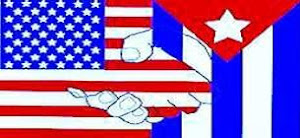http://www.flickr.com/photos/alphageek/ / CC BY-NC-SA 2.0 Yesterday, the nonprofit watchdog group, Public Campaign, issued a report entitled, "Cold Hard Cash, Cold War Politics." The group analyzed the relationship between Congressional votes on U.S. Cuba policy and donations of a network of pro-embargo donors, led mainly by the U.S. Cuba Democracy PAC (and seemingly coordinated with the PAC of a hardline Cuban American Congressman).
The PAC and its allies donated more than $10 million since 2004 to select members of Congress in an effort to hold back the forces of Cuba policy reform at work during the early 2000's. Public Campaign identified 18 members who essentially switched their long-standing position in favor of reforming U.S. Cuba policies after receiving donations from the pro-embargo community. One congressman singled out in Public Campaign's report, Ed Whitfield, a Republican from Kentucky, in part because his anti-reform votes went against agricultural interests in his district, has apparently reserved the right to 'revise and extend his remarks' if you will, and is seeking cover from former President Bush: "Obviously, U.S.-Cuban relations remain quite fluid and ever changing," said Whitfield's spokesman, Kristin Walker.
"The congressman has been supportive of altering some of the agricultural and humanitarian aid restrictions currently in existence, but as the report notes his views have evolved over time, influenced in part by direct conversations with some of his colleagues who are very knowledgeable about these issues as well as by the harder line position advocated by the White House during the period referenced." The headline here isn't so much that money influences votes in Congress - it's a fact in our political system. The real news here is that things are different now. Just ask Ed Whitfield.










0 Comments:
Post a Comment